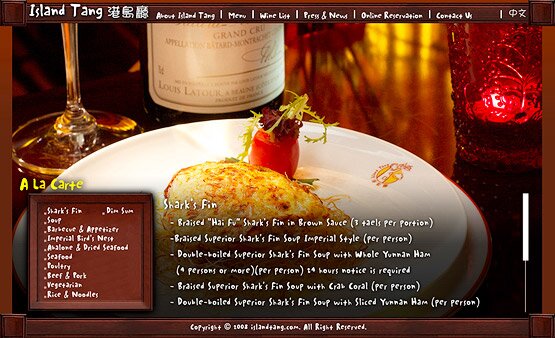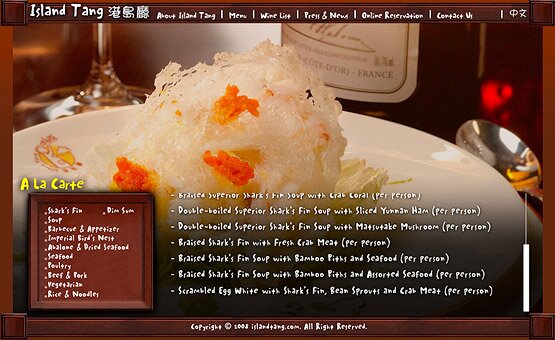Tag Archive for 'shark fin soup'
Delegates overturned the protection of the porbeagle shark, agreed earlier this week, and rejected protection measures for other shark species in the closing hours of the global summit on trade in endangered species in Doha.
A proposal that would have regulated trade in the scalloped, smooth and great hammerhead sharks, along with dusky and sandbar sharks, was reconsidered, after being defeated earlier this week, but did not achieve the two thirds majority out of 175 countries it needed for approval.
Porbeagle shark won 84 votes for, 46 against and 10 abstentions. The hammerhead shark proposal won 76 votes for, 53 against with 14 abstentions.
Similar proposals to regulate trade in oceanic whitetip sharks, spiny dogfish and red coral have all been rejected this week.
The decisions made in the last hours of the Doha meeting made it a clean sweep by Japan, which had mounted an orchestrated campaign to vote down all 13 marine species proposed for listing under the Convention for the International Trade in Endangered Species (CITES) over the past two weeks.
Sue Lieberman of the Pew Environment Trust said: “It is a truly sad day for conservation. CITES used to be a treaty that restricted trade for the sake of conservation. Today, it has become a treaty that restricts conservation for the sake of trade.”
Heike Zidowitz, president of Europe’s leading association of shark scientists, the Shark Alliance, said: “These failures leave some of the oceans’ most vulnerable and heavily traded species at great risk from unregulated, international trade.”
The proposals to list porbeagle and spiny dogfish under CITES Appendix II were developed by the European Union while the United States proposed similar action for hammerheads and oceanic whitetip sharks. The Pacific island nation of Palau co-sponsored all four proposals.
The high demand for shark fins by Asian countries, which use them in soup, is thought to be the major threat to hammerhead and oceanic whitetip sharks while porbeagles and spiny dogfish are sought primarily to satisfy European demand for their meat.
According to the International Union for Conservation of Nature (IUCN), all the shark species proposed for CITES listing were classified as Globally Threatened under the IUCN Red List and meet the criteria for listing under CITES Appendix II, which regulates trade.
Appendix II listings require countries to issue export permits after deciding whether trade in a species is legal and not detrimental to the species’ survival.
In the debate on hammerhead sharks, Jane Lyder, the US Interior Department’s deputy assistant secretary for fish, wildlife and parks, told fellow delegates, “The only data available show that the species is in decline.”
But a delegate from Japan questioned those statistics, and suggested small island states would suffer economically if they were forced to regulate the shark trade. “For developing coastal states, trade would be hampered and enforcement would be a nightmare.”
Conservationists say the irony is that the country hosting the meeting of the Convention on Biological Diversity this year is the country that did the most at this meeting to undermine the protection of marine biodiversity, Japan.
Charles Clover

A proposal to regulate trade in the scalloped hammerhead shark and four similar species was narrowly defeated at the summit of the 175-nation Convention on International Trade in Endangered Species(Cites) earlier today.
The measure was only narrowly rejected, failing by five votes to take the necessary two-thirds majority at the meeting after Asian nations argued that regulating the shark finning trade could hurt poor nations.
The tiny Pacific nation of Palau, which last year created the first ever shark sanctuary, joined the United States in introducing the proposal. It called on countries to protect the species so they can be fished into the future.
Japan, which successfully campaigned against an export ban on Atlantic bluefin tuna and regulations on the coral trade, led the opposition to the shark proposal. It argued that better enforcement, not trade restrictions was the answer. It also complained it would be difficult to differentiate the hammerheads from other species and would deprive poor fishing nations of much needed income.
They were joined by other countries dependent on the trade, including Singapore and Indonesia which catches the most sharks. Tom Strickland, the US Assistant Interior Secretary for Fish, Wildlife and Parks, said regional fisheries bodies had done nothing to regulate the trade in endangered scalloped hammerhead, great hammerhead as well as the threatened smooth hammerhead, and their numbers have dropped by as much as 85 percent.
“The greatest threat to the hammerhead is from harvest for the international fin trade and the fin of the species is among highly valued of the trade,” Strickland said. Conservationists say hammerheads are targeted for their fins more than any other shark species and are the most threatened. Fishermen, both industrial and small-scale, many operating illegally, slice off the fins and throw the carcasses back in the ocean and there are as many as 2.7 million hammerheads are caught annually.
Shark fin soup has long played central part in traditional Chinese culture, often being served at weddings and banquets. Demand for the soup has surged as Chinese middle class families become wealthier.
The hammerhead won 75 votes in the secret ballot with 45 against and 14 abstentions, leading conservationists to believe they may have a slim chance to reverse the vote later this week.
The oceanic whitetop shark also failed to win the two-thirds majority required for protection on Cites Appendix II. It received 75 votes in favour, 51 against, 16 abstentions (by a secret ballot). It failed to reach a two thirds majority by 9 votes.
The large fins of oceanic whitetip sharks have been valued at $45 -
$85 per kilogram. Oceanic whitetip populations have declined by as much as 90 percent in the central Pacific Ocean and 99 percent in the Gulf of Mexico.
Appendix II listing for the two shark species would have meant that trade would have been allowed wherever shark populations could stand the fishing pressure.
Matt Rand, director of global shark conservation for the Pew Environment Group, said: “Sharks have been on our planet for more than 400 million years, but if governments do not act, many shark species will not last. Most species reproduce late in life, have few young and simply do not have the capacity to recover from commercial extraction and global trade “The shark fin trade which is responsible for the killing of up to 73 million sharks annually remains largely unregulated,” he added.
“Despite scientific data showing that many shark populations are plummeting, international fisheries management bodies and now international conservation forums have favored commerce over protection. Individual nations need to answer the call to protect threatened species if sharks are to remain in our oceans.”
Oliver Knowles from Greenpeace International said: “The devastating result this morning sees hammerheads and oceanic whitetip sharks join the Atlantic bluefin, and red and pink corals, as victims of short-term economic interest winning out over efforts to save species from extinction at this Cites meeting.”
The fate of Spiny dogfish and porbeagle sharks is to be decided later today.
Charles Clover

Earlier this week we reported on the row between Lord Antony Rufus-Issacs and Sir David Tang, owner of China Tang at The Dorchester Hotel, over the sale of shark fin soup by the restaurant.
The End of the Line started a campaign to ask China Tang not to serve shark fin soup, which proved to be short-lived as Sir David agreed not to serve the soup at the London restaurant following pressure from environment groups.

Screenshot of the Island Tang website showing shark fin soup
However, Sir David has come under renewed attack after it became clear that shark fin soup remains on the menu of Island Tang, the Hong Kong restaurant that he also runs. Continue reading ‘The End of the Line renews call to Sir David Tang to end sale of shark fin soup’

To all you fellow ocean lovers, I know these screen shots will be an uncomfortable sight for you. They show the shark fin section of the menu for Island Tang restaurant in Hong Kong.

Screenshot of the Island Tang website showing shark fin soup
To me the thought of eating shark fin is about as appealing as eating a cheetah’s tail. Braised shark fin anyone?
There is not a chance in hell I would ever touch the stuff!

Second screenshot of the Island Tang website showing the other shark fin dishes
Why am I so passionate about sharks? This time last year I was living on a remote island around 14 hours boat ride off of mainland Fiji where I was helping on a marine conservation project.
I was lucky enough to dive at Shark Alley which has been described by Harper’s Bazaar magazine as ‘One of the worlds most enviable dive site’. I very much agree.
After doing our safely checks we dropped down into the sea and straight away as I was slowly lowering to deeper depths I could see 10 sharks. This became around 30 whitetip and blacktip reef sharks. I had only briefly dived with one shark before this, so I was a little nervous. Continue reading ‘Why sharks belong in the sea, not in soup’

- Following the news that China Tang will not be serving shark fin soup, we have stop collecting names to send to the restaurant. You can read our latest news here.
China Tang, the restaurant located in The Dorchester hotel run by Sir David Tang, has come under fire for allegedly selling shark fin soup.
Conservationist and film maker Lord Antony Rufus-Issacs says that he was offered the soup, which was not on the menu, when he dined at the restaurant last week. He has written to Sir David asking him to stop serving shark fin soup, after seeing The End of the Line.
In his letter, he said: “I have seen the film [The] End on the Line and was deeply effected [sic] by it as were so many people. I am writing to you as a result of seeing the film.”
China Tang has subsequently claimed that this was a ‘mistake’ by staff, and that they took shark fin soup off the menu months ago due to ethical concerns.
Shark fin soup is contentious as the fins are often ‘harvested’ by cutting the fins off live sharks that are then thrown back into the sea to bleed to death.
Shark fin soup is traditionally eaten on special occasions, such as weddings, in Chinese society. It is regarded as a status symbol due to the cost of the fins and has to be flavoured with stock as the fins themselves have little or no taste.
The End of the Line campaign abhors the practice of shark-finning and calls on China Tang to not serve the soup. We have compiled an email to send to China Tang, expressing your concern and asking them not to sell it.
You can view our protest over shark fin soup here.

![]()




